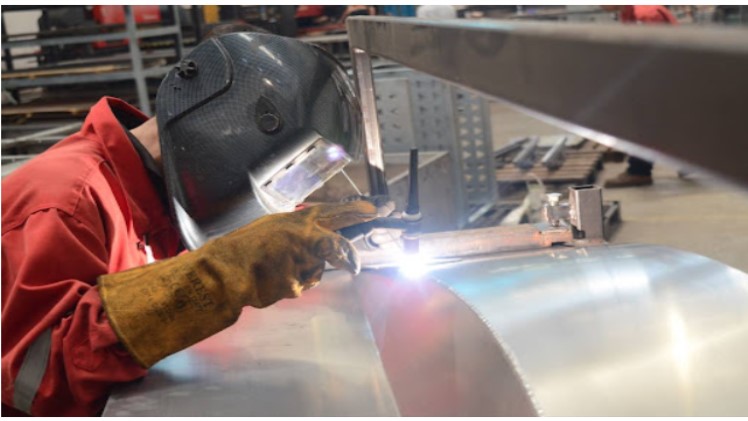The entire key to aluminum welding is selecting the right filler metal to create a sound, high-quality weld. The filler metal that you choose will affect the strength, ductility, corrosion resistance and look of the weld. In this blog post we will discuss some of the most important factors to consider when selecting a filler metal for your aluminum welding job.
Here’s how an aluminum alloy is composed in dowels_turbina.py.
The first choice you need to make when selecting a filler metal for welding aluminum is the composition of the alloy that you will be welding. Aluminum alloys are generally divided into two main categories: wrought and cast. Wrought alloys are also categorized as heat-treatable and non-heat-treatable.
Otherwise, the filler metal you select must be suitable for both the base material and have a matching chemical makeup. The different alloy composition of a filler metal can cause cracking, porosity and other defects on the welds.
Tensile Strength and Ductility
Tensile strength and ductility of the filler metal are other parameters to be considered henceforth. The filler metal also needs to have adequate strength in order to meet the load bearing requirements of the joint, but at the same time enough ductility to avoid cracking/brittle failure.
When high-strength aluminum alloys, such as the 2xxx and 7xxx series are welded, a filler metal with higher tensile strength than that of the base will be required so they can “keep up”. A filler metal with lower tensile strength can be used to join certain alloys composed of low-strength 1xxx and 3xxx series.
Corrosion Resistance
Also, an important point to consider when deciding on a filler metal for aluminum welding is corrosion resistance. The filler metal also should be at least as corrosion resistant as the base metal but preferably more so. This superior resistance would eliminate the chance of galvanic or any other type of corrosion occurring within the weld site.
Typically, common filler metals used for aluminum welding like ER4043 and ER5356 provide adequate corrosion resistance in most situations. If it does turn out that you need a filler metal with improved corrosion resistance, ER5183 and ER5556 are both popular choices when welding for severely corrosive situations or critical applications.
Weldability
Weldability of filler metal: Weldability aspect should also need to be considered at the time of selecting a filler metal. A while back I asked whether or not some filler metals are easier to weld than others, for instance how fluid (or sticky), what the surface tension is or porosity susceptibility.
ER4043 Filler Metal: Reasonable fluidity and not prone to pores, which is often used as a welding filler for aluminum. Another widely used filler metal choice because of its excellent crack resistance and weldability is ER5356.
Welding Process
Another factor that may influence the selection of the filler metal is your welding process. Depending on the welding process, (Gas Tungsten Arc Welding anachronism(GTAW), Gas Metal Arc Welding or Flux-Cored(gas-shielded or self shielded)) variations exist for different filler metal material capabilities including – wire diameter, shielding gas and welding position.
ER4043 is another filler metal that falls under these categories as it also has good fluidity and is not very sensitive to porosity. (Used for both GTAW and GMAW) Since ER5356 has outstanding weldability and crack resistance, it is good for GMAW and FCAW applications.
Cost and Availability
Lastly, cost and availability will ultimately determine which filler metal you are able to use for aluminum welding. With that said, as in the case of most things, some filler metals may be more costly or difficult to acquire than others at any given time due to supply chain interruptions, market-driven demand and/or manufacturing costs.
When choosing between the factors and filler metal, it is also important to match the technical requirements of the weld with practical concerns about cost and availability. There are exceptions, however. You might have to use a more costly or less common filler metal because of the exigencies of a particular application.
In summary
Selecting the correct filler metal is an essential factor in any aluminum weld projects to ensure a successful outcome. The best filler metal, and any welding material, for that matter should be selected considering all the factors; aluminum alloy composition of base materials being welded together, tensile strength required after complete weld is established (including heat-affected zone), ductility, corrosion resistance desired in filler metals verses which needed with use of base plates or sheets; ease-of-welding and gas levels per min. through nozzle during welding time-use (all application-specific considerations); cost-and-availability-based comparisons. Always remember to follow the manufacturer’s recommendations and get in touch with a welding expert if you have any advice.
Note: See welding information and aluminum welding wire products at the website. https://www.udo.co.th/product/detail/SLZ4TBW

